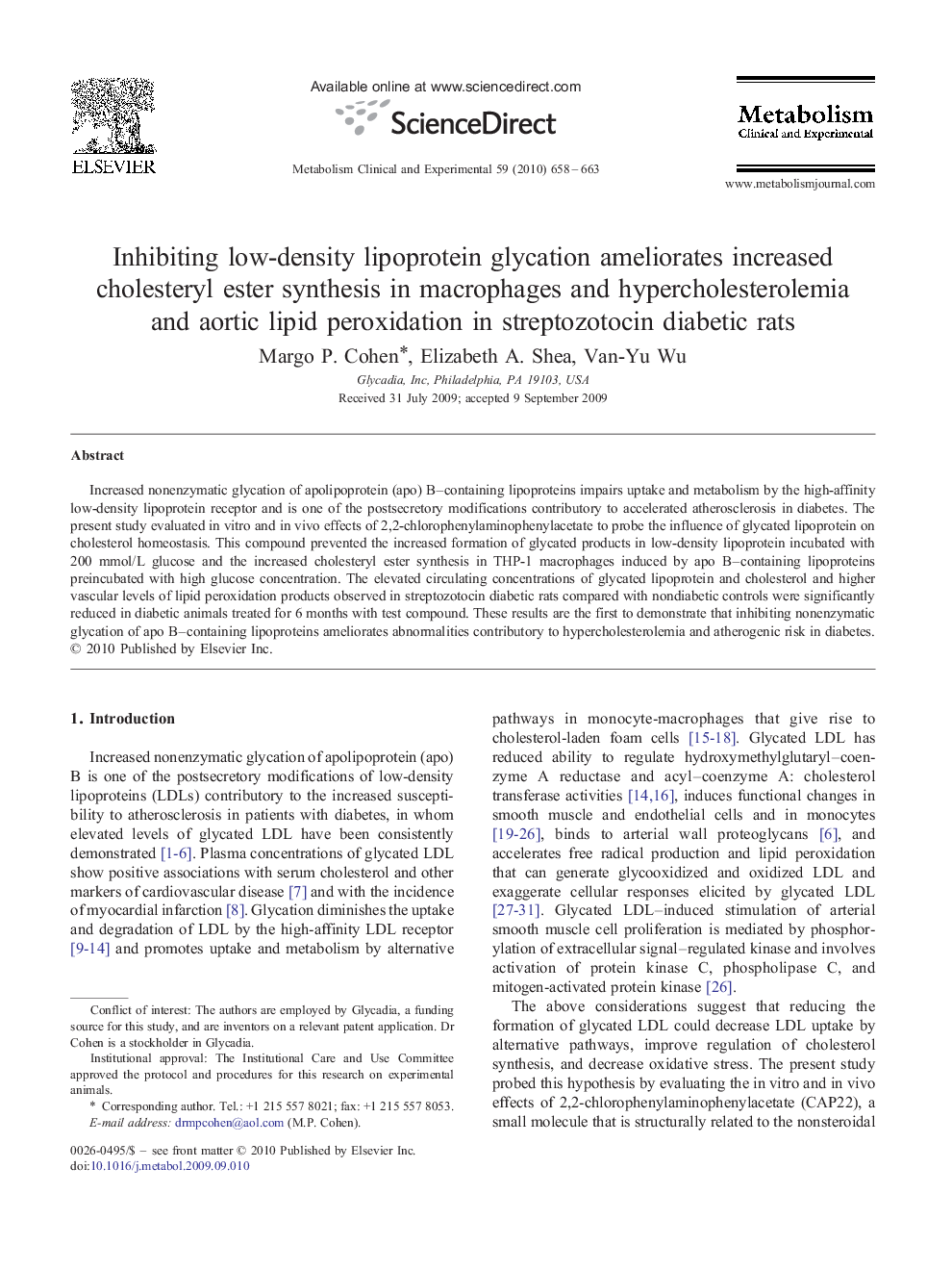| Article ID | Journal | Published Year | Pages | File Type |
|---|---|---|---|---|
| 2806578 | Metabolism | 2010 | 6 Pages |
Abstract
Increased nonenzymatic glycation of apolipoprotein (apo) B-containing lipoproteins impairs uptake and metabolism by the high-affinity low-density lipoprotein receptor and is one of the postsecretory modifications contributory to accelerated atherosclerosis in diabetes. The present study evaluated in vitro and in vivo effects of 2,2-chlorophenylaminophenylacetate to probe the influence of glycated lipoprotein on cholesterol homeostasis. This compound prevented the increased formation of glycated products in low-density lipoprotein incubated with 200 mmol/L glucose and the increased cholesteryl ester synthesis in THP-1 macrophages induced by apo B-containing lipoproteins preincubated with high glucose concentration. The elevated circulating concentrations of glycated lipoprotein and cholesterol and higher vascular levels of lipid peroxidation products observed in streptozotocin diabetic rats compared with nondiabetic controls were significantly reduced in diabetic animals treated for 6 months with test compound. These results are the first to demonstrate that inhibiting nonenzymatic glycation of apo B-containing lipoproteins ameliorates abnormalities contributory to hypercholesterolemia and atherogenic risk in diabetes.
Related Topics
Life Sciences
Biochemistry, Genetics and Molecular Biology
Endocrinology
Authors
Margo P. Cohen, Elizabeth A. Shea, Van-Yu Wu,
